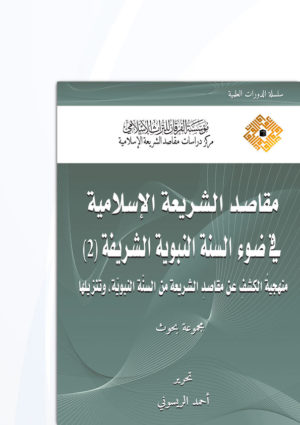In response to a unanimous request from all attendees who participated in the first course, and agreed on the necessity of pursuing research on the significance of Sunnah in comprehending the objectives of Shariʿah, especially the issues related to understanding and methodology, the Centre for the Study of the Objectives of Islamic Law at Al-Furqān Islamic Heritage Foundation organized the second course on “The Objectives of Islamic Law in Light of the Noble Prophetic Sunnah”, on 24 and 25 April 2019, at Hotel Dreams, in Tetouane, Morocco.
The Opening session
The opening session, chaired by Dr. Noor El-Din El-Khademi, started with recitation of verses from the Qurʾan, by Moulay Hassan Al-Barhoumi. After that, the session commenced with a speech by Dr. Hisham Tahtah, on behalf of the Islamic Studies Department at the Faculty of Arts and Humanities in Tetouan, who emphasised the importance of this course from a methodological perspective, as it tightens the relation between the contents of the Sunnah and the rules of the legitimate objectives on the one hand, and the conditions of the nation - weakness, revival and witnessing - on the other. He also pointed out that the present course was meant to deepen the insight into this objective, complete, clarify and beatify it. Hence, it was titled "The Methodology of Revealing and Applying the Islamic Law Objectives via the Prophet's Sunnah."
The second welcome speech was delivered by Mr. Sali Shahsivari, the Managing Director of Al Furqan Islamic Heritage Foundation, who welcomed the scholars, professors and students, and conveyed to them the regards of the Foundation and its founder and patron, HE Sheikh Ahmed Zaki Yamani. Then, Mr. Shahsivari referred to the significance of the methodological aspect of Shariʿah objectives, indicating that this course is a continuation of the first one, which was held in the city of Meknes. He also confirmed that Al-Furqān Foundation is determined to proceed in this way to activate the objectives and their role in explaining the Shariʿah in the spirit of today, whilst preserving its originality. Mr. Shahsivari concluded by expressing his high appreciation and sincere thanks to the scholars, the peer review panel, and the organizing committee.
Then, Dr Ahmed Al-Raissouni, the Director of Al-Maqasid Centre for Studies and Research, spoke about the importance of the topic of the Sunnah, the need to clarify its objectives, and the methodology of understanding it, and, thus, fortifying against any misconceptions and deviation both theoretically and applicably, and discovering its meanings and objectives.
First session
This session was chaired by Dr. Abd al-Rahman Al-Kilani, and began with Dr. Noor Al-Din Al-Khadmi’s paper on the "Methodological basis for the Maqasidi Sunnah: Exploration and application". Dr Al-Khadmi emphasised the importance of this research as it presents the behavioural and procedural identification to establish a scientific matter in the mind, by means of visualisation and realisation. He indicated that there is a demanding need for this research in vital areas, such as the field of religiousness and civilization via Sunnah, the field of Hadith, its narration and understanding, developing and renewing Sunnah studies, and the field of political performance and societal work according to Sunnah.
ThenDr Lakhdar Lakhdari presented his paper titled “The theory of major parameters in revealing the objectives of the Sunnah”. He started with talking about the target of Islamic legislation, and the link between its rules and the individuals on whom such rules are prescribed. According to Dr Lakhdari, the reasoning of major maqasid is confined to five parameters, and he chose to call the school of this hypothesis the major parameters school (MPS), which includes in its totality: the tools of exploration, legal traditions, overall descriptions, the science of balance, the ascension, and the reduction theory.
The second session was chaired by Dr Ahmed Al-Raissouni, in which Dr Abd al-Rahman Al-Kilani discussed “The existing evidence around the Sunnah and their impact on revealing the justification of the rulings and their objectives”. At first, he defined the importance of research in the existing evidence, as they assist the scholar of the Sunnah to understand the texts and interpretation of the words, specification of the general, restriction of the absolute, clarification of the summarized, and explanation of the problematic. The existing evidence also enables us to distinguish between the Prophet’s actions: being a messenger, a political leader, a military commander, a just judge, a head of household, an ordinary person, or in any other capacity which can be identified and specified, based on the evidence of the diverse prophetic actions.
Then, Dr Al-Bashir Al-Qandili followed with his paper on “The effect of considering the objective of the responsible individual according to the Sunnah jurisprudence, and its implementation: issues and examples”. After Dr Al-Qandili affirmed the importance of research in the subject, and pointed out that Shatibi had a precedent in dealing with it, he addressed the consideration of the objective of the responsible individual in the mere acts of worship and in the rest of acts. He also pointed out that the reader of the texts of the noble Qur’an can clearly observe that they are meant to reform the inner self before the apparent.
Third Session
The session was chaired by Dr Lakhdar Lakhdari, and started by Dr Abd Al-Majid Al-Najjar research paper, titled “Obligation and its limitations in the Sunnah”. In his introduction, he pointed out that, although the Sunnah shares with the Qurʾan the principle of obligation, it differs from the Qur’an in its nature, which may have an impact on this obligation regardingelaboration, and it can be of degrees. However, it can surpass it to the established origin.
The second speaker was Dr Hisham Tahtah, whose paper was entitled “Towards a Maqasidi approach to reading the biography of the Prophet”. In the introduction, he stated that the objectives of the Qur'an and Sunnah are a conclusive argument that protects from the evil heretic tendencies. He emphasized the need to open new research horizons for the Maqasid studies, and pointed out that such studies are affected in their epistemology, methodology, or the activation of their practical aspects. He highlighted that the researchers in Maqasid give their utmost care to the language of Qurʾan and Sunnah, but not to the biography of the Prophet, which represents the practical aspect of Maqasid.
Fourth Session
The fourth session was convened under the chairmanship of Dr Al-Husayn Al-Moos, in which, Dr Mawlay Mustapha Al-Hind read the paper of Dr. Misfir Ibn Ali Al-Qahtani, who could not attend due to circumstances beyond his control. His paper on ”The objectives of the Prophet on the concept of the nation ... and its implementations in reality”began with exposition of the authoritativeness of Sunnah, then raised a central question about the Prophet’s objective of the concept of “the nation”? And what could be built on it in our present times?
After that, Dr Mohamed Bolouz read and commented on the paper of Dr Saad Al-Kubaisi, who also could not attend due to circumstances beyond his control. The paper was entitled "The Objectives of Political Change in the Sunnah". As introduction, it began with a display of the greatness of this religion. It is fixed in its beliefs, morals, values and practical provisions that are not subject to change, family laws and the like, but in the field of legitimate policy there is a vast area of variables and interpretations.
Fifth Session
It was convened by Dr Bushoayb Mahmadi, in which Dr Abd Al-Mon’im al-Tamasmani presented his paper entitled "The Objective of Mercy and its Applications in the Sunnah".Dr Al-Tamasmani stressed in his introduction that the objective of mercy is the general principle of sharia, i.e., mercy is a universal and general objective. This was followed by explanation of the research terms such as the Maqasid and mercy.
The following paper was delivered by Dr. Ahmed al-Azzawi, entitled “The objective of mercy in the Sunnah: the mercy of the Prophet to the people of the book as an example”. The research starting point was the Qurʾanic verse to highlight the mercy of the Prophet to Muslims and non-Muslims (We have not sent you - O Muhammad - except as a mercy to the worlds). This statement was used by the researcher in his argument that the objective of the Prophet of mercy in the treatment of the Jews and Christians, and his speech to them and its application and benefit from them. Such treatment push away the fear from violence and terrorism from Islam, raised by its enemies, whether ignorant or not, and confirms that the message of Islam is a message of mercy and peace to the world, not a message of vengeance, war and terrorism for the faithful.
Closing Session
The closing session was chaired by Dr Abd al-Majid al-Najjar, in which took the floor Dr Mohammed Al-Samadi, on behalf of the Faculty of Arts and Humanities in Tetouan, Mr. Mohamed Drioueche, responsible for Projects and Publications at Al-Furqān Foundation, Dr Hussein al-Moos, Vice-Director of Al-Maqasid Center for Studies and Research, and Dr. Abd al-Rahman Al-Kilani, on behalf of the lecturers; followed by Dr Mohamed Awwam who read the recommendations.
The course was concluded with a recitation of verses from the Holy Qur’an, by the reciter Moulay Hassan Barhoumi..
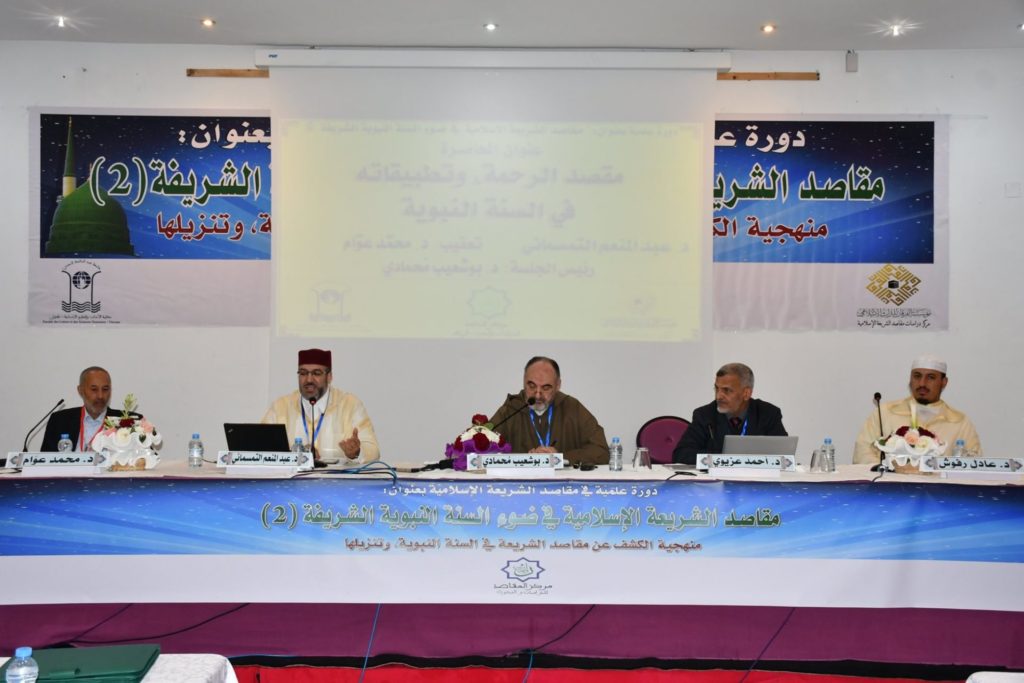
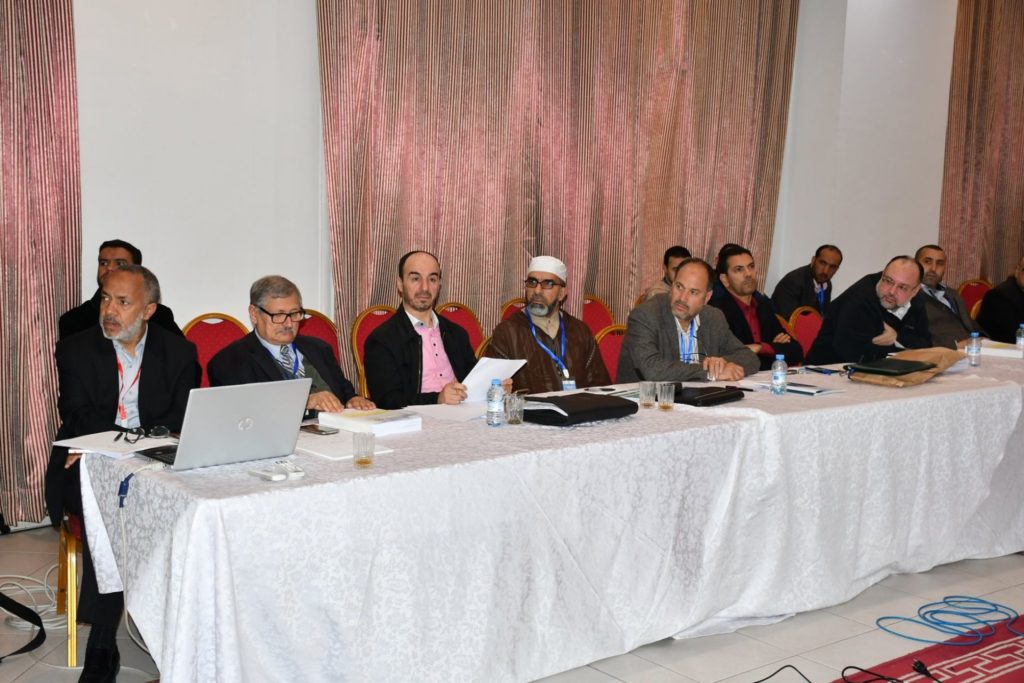
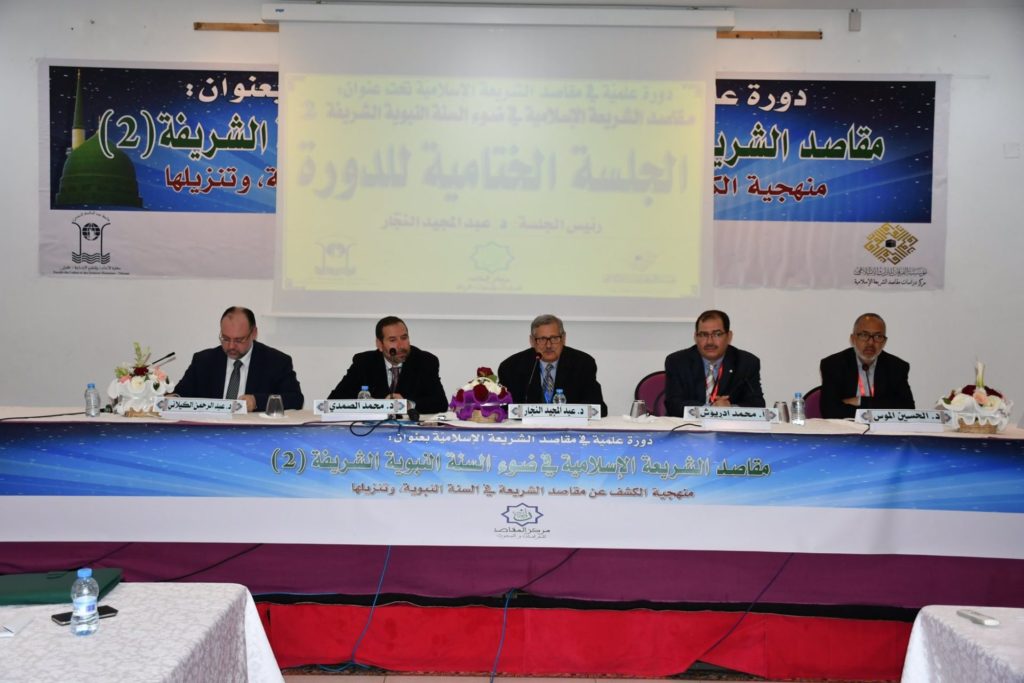
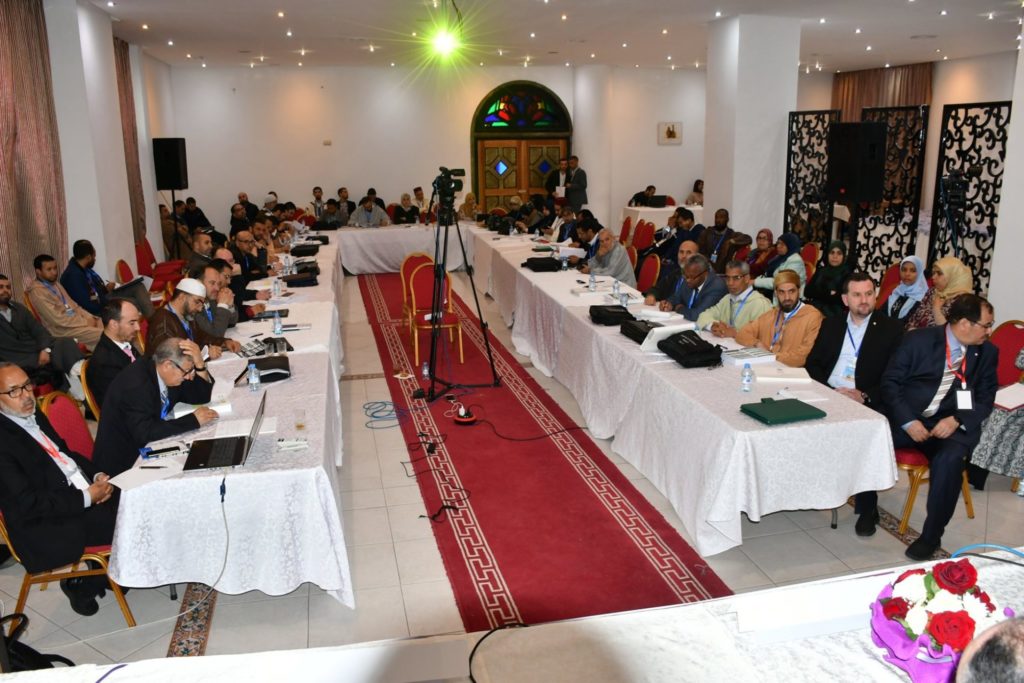
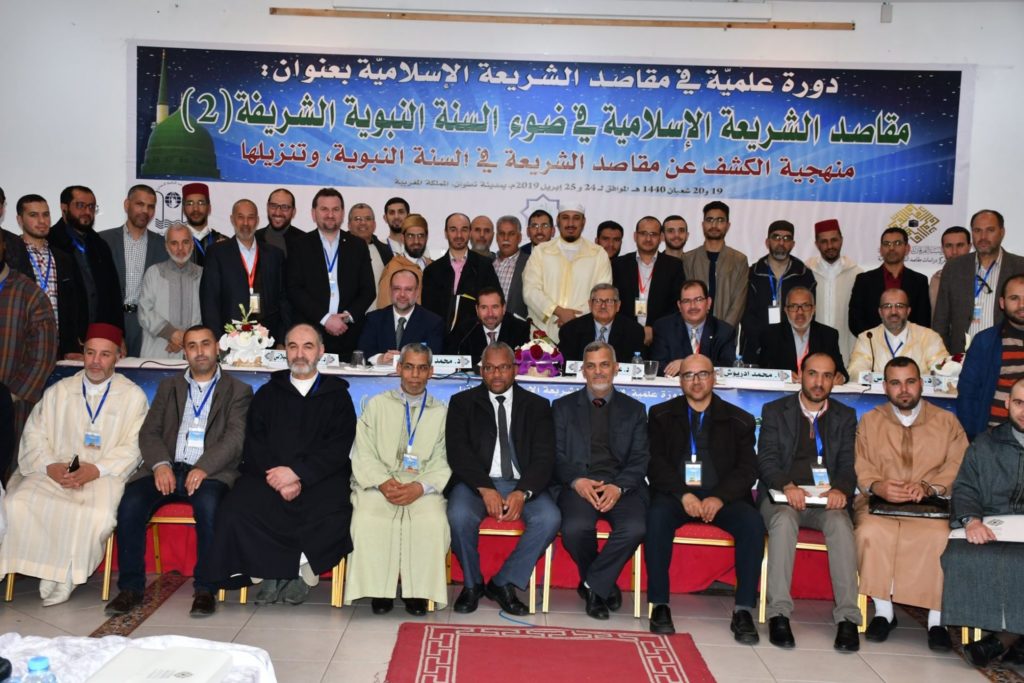
Related Video


